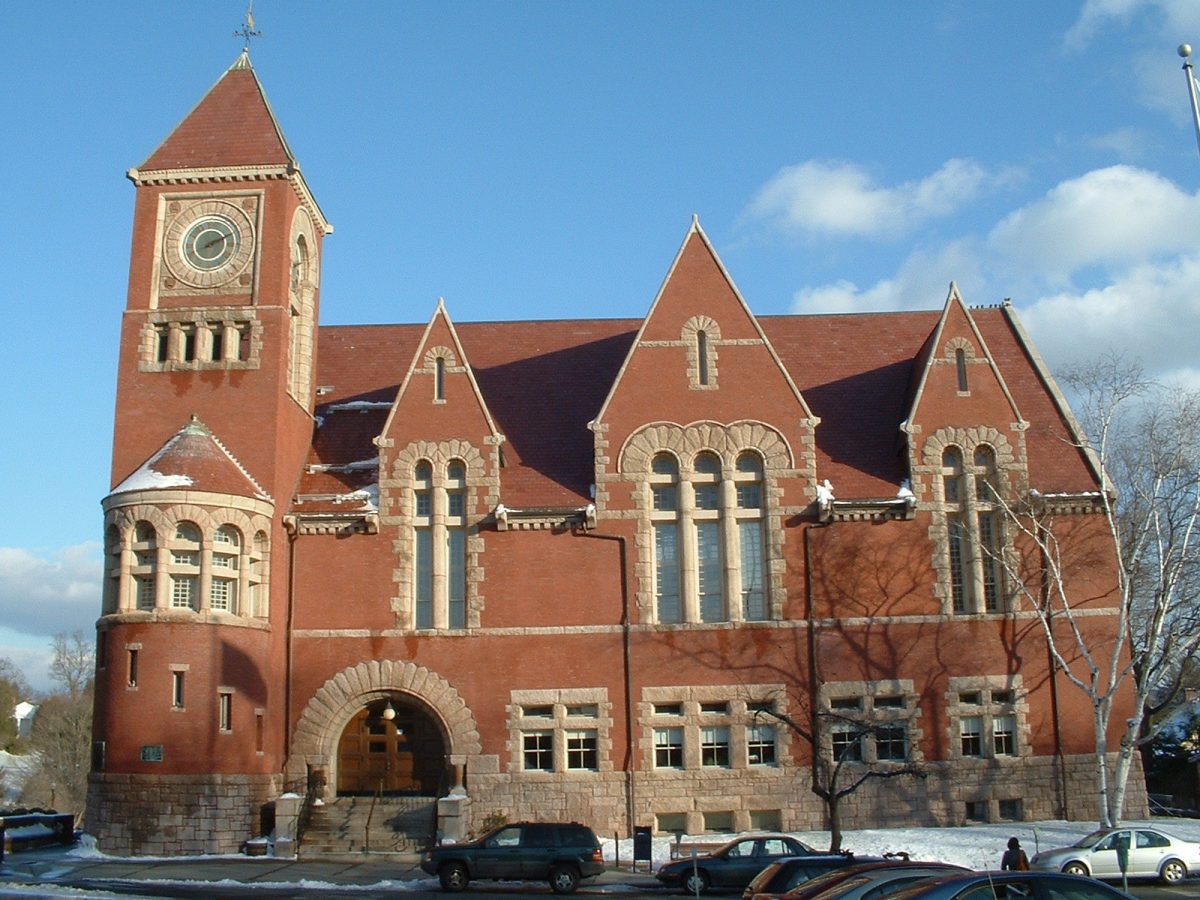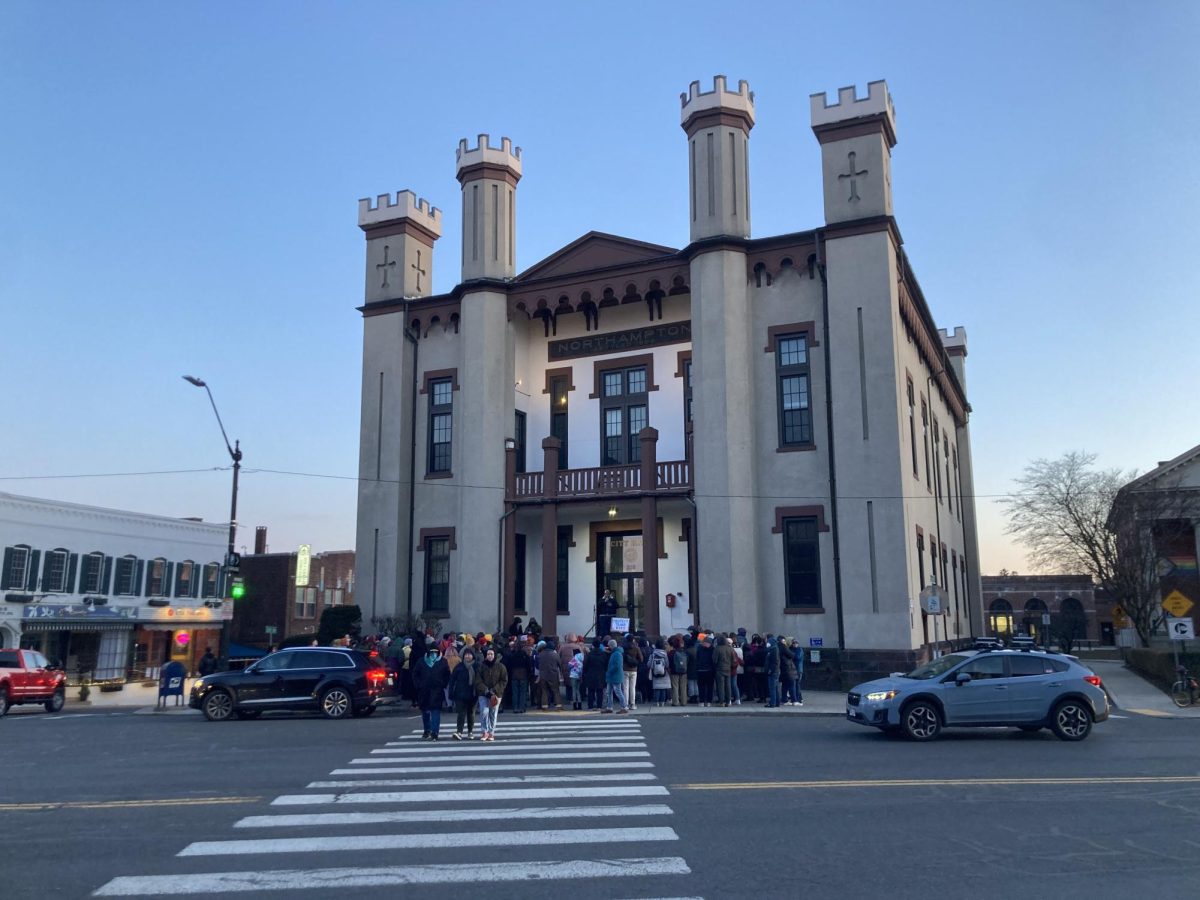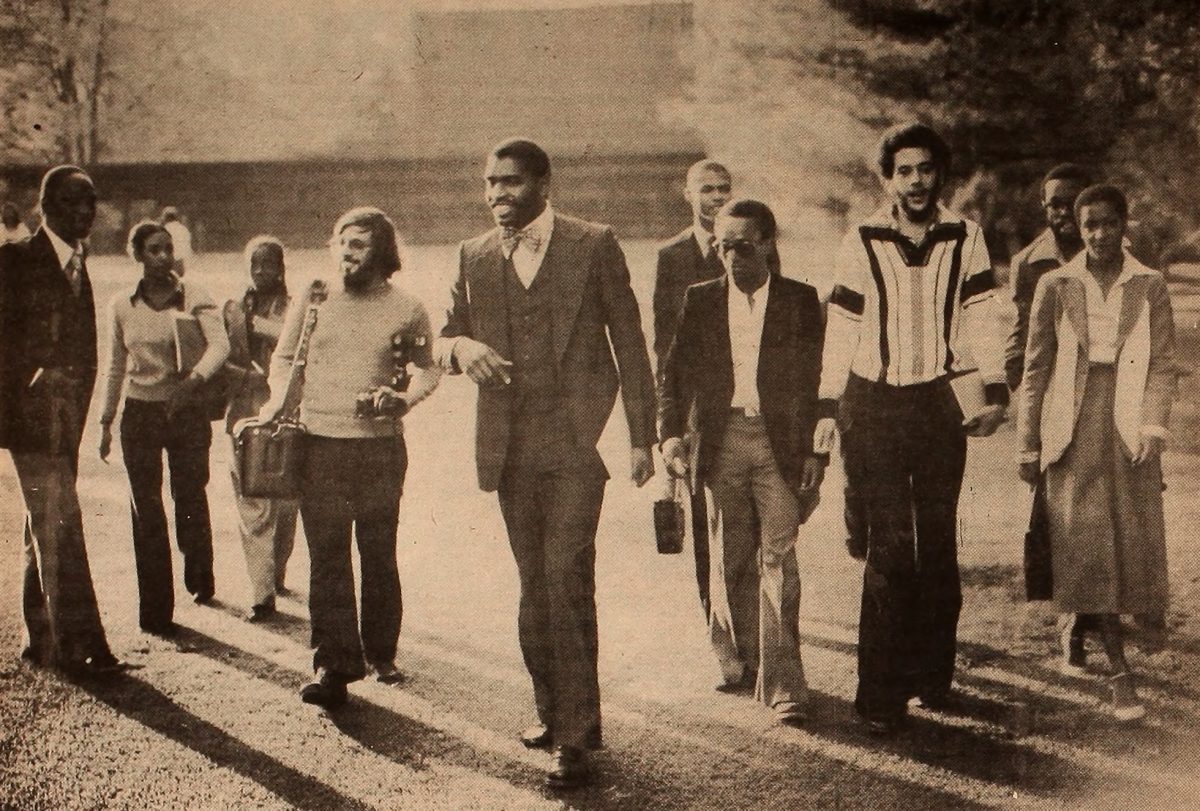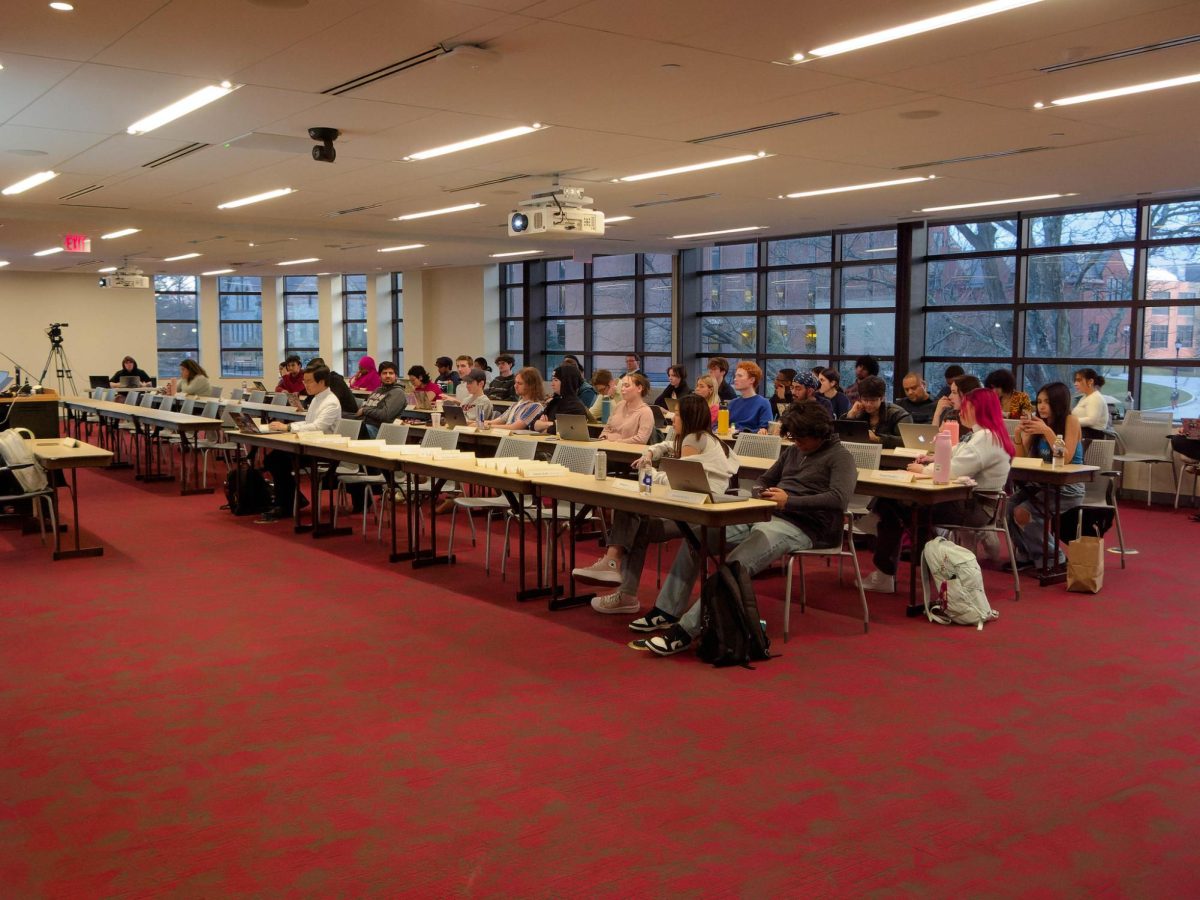
In light of the 50th anniversary of the National Historic Preservation Act, Max Page, an architecture and history professor at the University of Massachusetts, shared his critiques of the current approach to historic preservation and his ideas to enhance it Wednesday afternoon in Goodell Hall.
During his faculty lecture, “The Arc of Memory: Bending the Future of Historic Preservation,” Page spoke of the importance of preservation and its impact on the world as more than a practice of restoring history.
“Preservation matters more than ever,” said Page, “It touches on our personal memories and therefore links us to the river of time, revealing history’s best moments. It can present us to the world that before us our ancestors created.”
In the United States, the continued preservation of historic sites and buildings connected to American ancestry has been made possible by the National Historic Preservation Act of 1966, said Page. In the last 100 years, the U.S. has moved from focusing on preserving historic sites to preserving architecturally important buildings, a shift that Page explained was equally important but less satisfying.
“We have lost something from this being much more focused on architectural preservation,” Page said.
Architectural preservation, however, is not immune to the effects of the current rules and regulations of preservation. According to Page, these rules and regulations restrict what can be done with preservation in terms of further architectural development. Page provided the example as a slide of an old barn with a solar panel fitted onto its roof and explained preservationists would not approve of the changes made to enhance the use of the barn due to its inclusion of modern development.
“Too often preservationists have been against development,” said Page. “We should be wanting to build new buildings now (and add elements) to compliment the old ones so that we can save them fifty years later.”
Page also explained the construction of modern buildings created opportunity for preservation today as well as in the near future.
“95 percent of all buildings in the U.S. today were built in the last 50 years,” said Page, “If we want a better sustainable world, we will then have to ask ourselves of the intent of (the buildings) and learn to work with them to preserve them (for the future).”
Preserving new buildings for future generations to reuse is a part of the progressive preservation movement outlined in Page’s lecture. He said that if people are truly committed to global sustainability, they will have to save and reuse buildings because it takes several decades for newer structures to become as sturdy as older buildings.
Page also discussed the issue of preserving sites and structures with connections to dark historical events, using Germany’s concerns with their historic buildings from World War II as an example. He explained in order to overcome the dark past of the old structures, there have since been several creatively designed buildings in Germany. The World War II structures have also remained to provide a sense of justice, which, according to Page, is part of what defines historic preservation.
“I want to suggest that historic preservation is a service of collective memory, but it should also be a service of collective justice,” said Page.
Page ended his lecture with a photograph of a broken bust with a hand attempting to put together its pieces.
“I kept looking at this as it bothered me; it seemed to be a metaphor of our elusive desire to repair,” said Page, “We can’t heal all the injuries of the past, but it seems to me that the central purpose of preservation is to hold us there in those places with creativity and passion and make us understand who we are.”
Following his lecture, Page received the Chancellor’s Medal, the highest honor bestowed to faculty on campus.
Elizabeth Kane can be reached at [email protected].


















